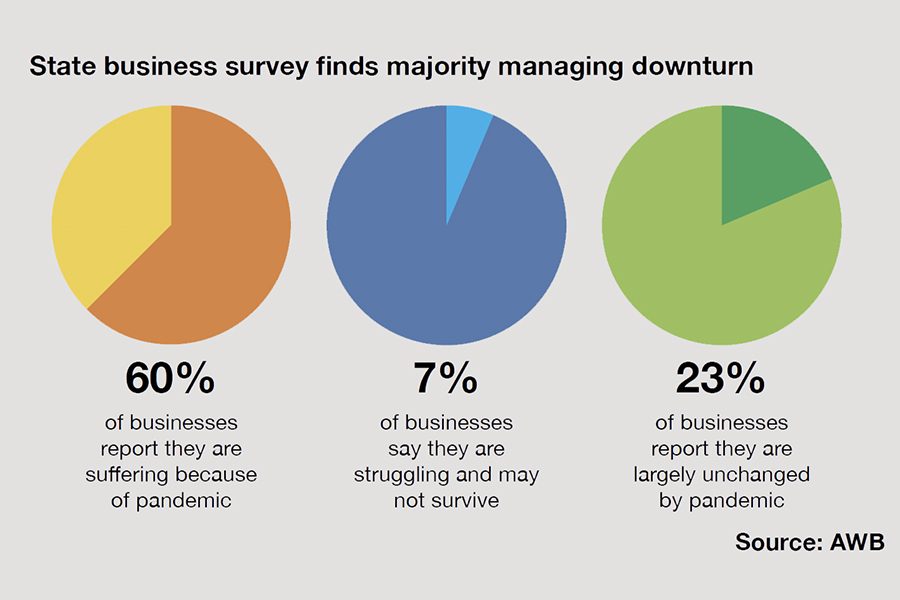
Home » Survey finds Washington employers hit hard by pandemic
Survey finds Washington employers hit hard by pandemic

September 14, 2020
A statewide survey finds a majority of employers are managing their way through the downturn despite significant declines in revenue, supply chain disruptions and other challenges.
It found that 60% of respondents said business has suffered as a result of the pandemic, but they are finding ways to manage through the challenges, while 7% said their business is struggling and may not survive. Nearly a quarter of respondents, or 23%, reported business is largely unchanged by the pandemic.
The survey of 457 Washington employers was conducted by the Association of Washington Business over the course of two weeks in August.
Some of the ways businesses are responding to the challenges include laying off staff, delaying new hires and participating in aid programs such as the federal Paycheck Protection Program and Economic Injury Disaster Loans.
Sixty-five percent of respondents reported receiving funds through the PPP and 18% reported using Economic Injury Disaster Loans. Six percent said they have used the state of Washington’s SharedWork program.
Nearly a quarter of respondents (23%) reported laying off workers as a result of the pandemic and 27% said they delayed hiring. However, most employers don’t anticipate further layoffs in the short term. Sixty percent said they are not planning to lay off workers in the next 30 days, compared with 4% that said they will need to lay off additional workers during the next month. Another 7% said they plan to reduce hours for employees or contract workers.
When asked about ways the state could assist employers during the economic downturn, respondents strongly favored a reduction in the business and occupation tax. Forty-four percent said they believe a B&O reduction would be the best way for the state to help businesses recover, followed by an unemployment insurance rate freeze (22%) and a workers’ compensation rate holiday (18%).
With school underway throughout the state in a virtual format, child care is significant workforce concern for many employers. More than half of respondents (54%) said they have employees who are either “somewhat concerned” or “definitely concerned” about access to affordable, high-quality child care, and 9% said child care is a major issue for their business.
The vast majority of survey respondents were small businesses, with 80% employing fewer than 100 people.
Thirty-seven percent of survey respondents employ 10 or fewer people. Respondents came from a broad cross-section of industry types, with services or professional representing the largest portion (27%) followed by manufacturing (20%), construction (10%) and retail (8%) with the remaining 35% coming from various sectors.
Local News
KEYWORDS september 2020





